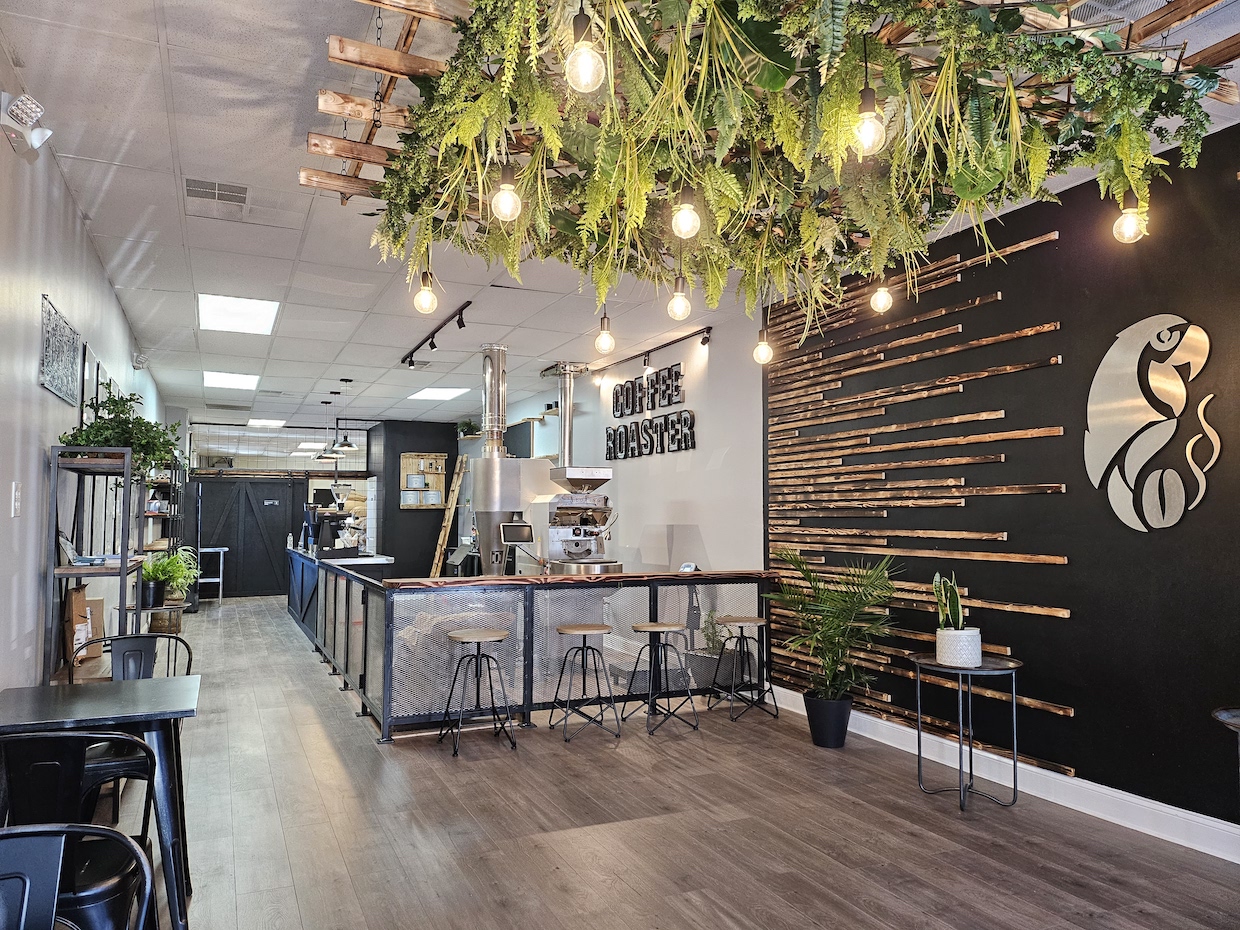
A direct line connecting the coffee lands of Honduras to Lyndhurst, New Jersey, was recently drawn with the opening of the Sierra Coffee Group.
The family-run company opened a roastery and modern-industrial cafe brightened by colorful paintings from Honduran artists and a leafy green canopy that recalls the tropical origins of the coffees. On an otherwise black powder-coated La Marzocco Linea espresso machine shines the image of a scarlet macaw, the national bird of Honduras.
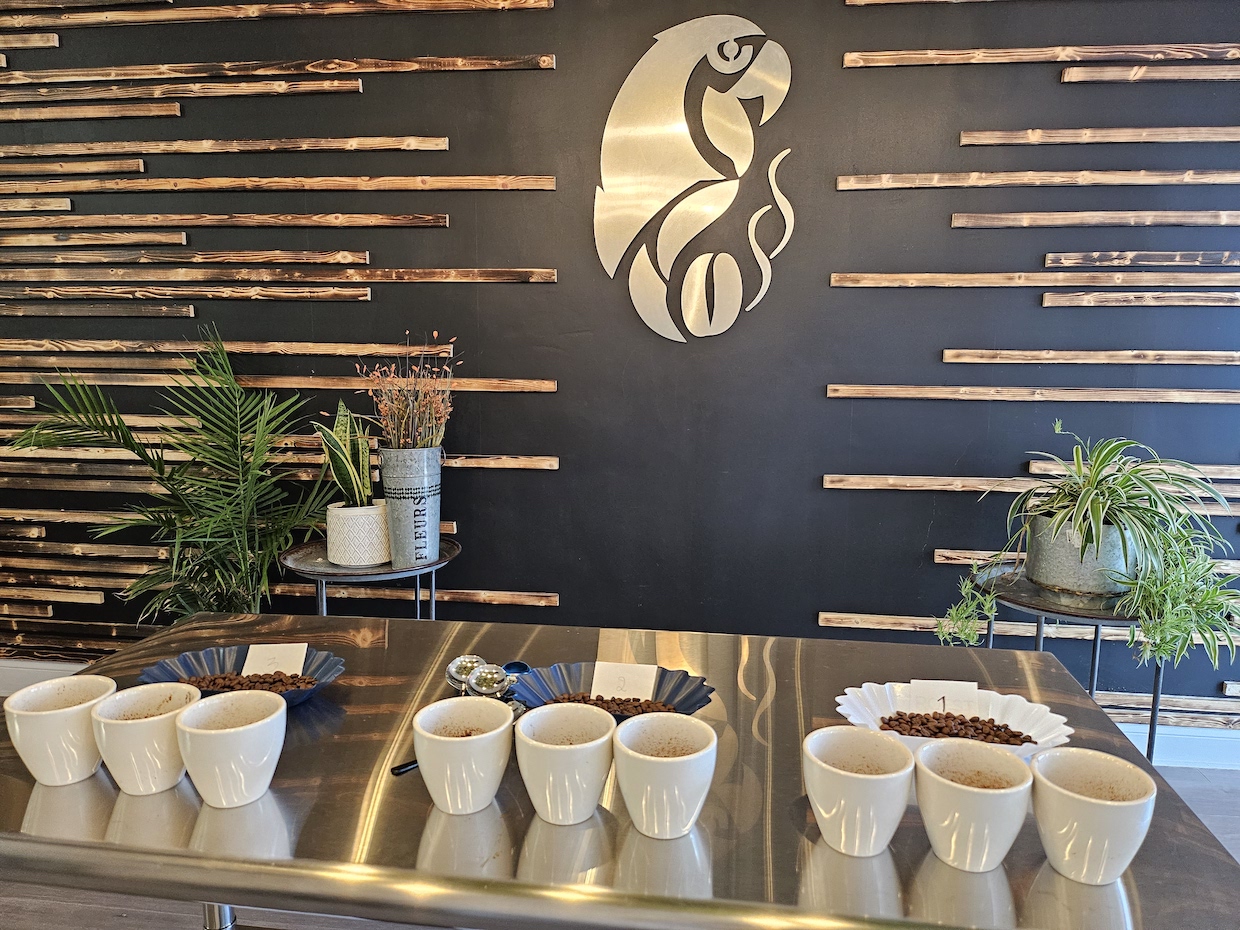
Mayra Sierra runs the company with her daughter, Mayra Gomez, who handles the roasting and was trained by two-time Honduras National Barista Championship Mary Portillo.
“[Mayra Sierra] decided the cafe style should be industrial, modern and minimalist, but it should also showcase cultural aspects of Honduras and other educational aspects of coffee,” the younger Mayra recently told DCN. “For the cultural aspect, we decided to decorate the space with paintings from Honduran artists. The steel logo of our Scarlet Macaw also decorates the entrance of our cafe.”
Gomez roasts coffees inside the shop on a Loring S7 Nighthawk roaster. All of the coffees come from the Copán region of Honduras. After roasting and bagging through Sovda weigh-and-fill equipment, the coffees labeled with an emphasis on the specific plant variety. All labels, including multi-variety blends for espresso and drip, also name the specific farms that grew the coffees.
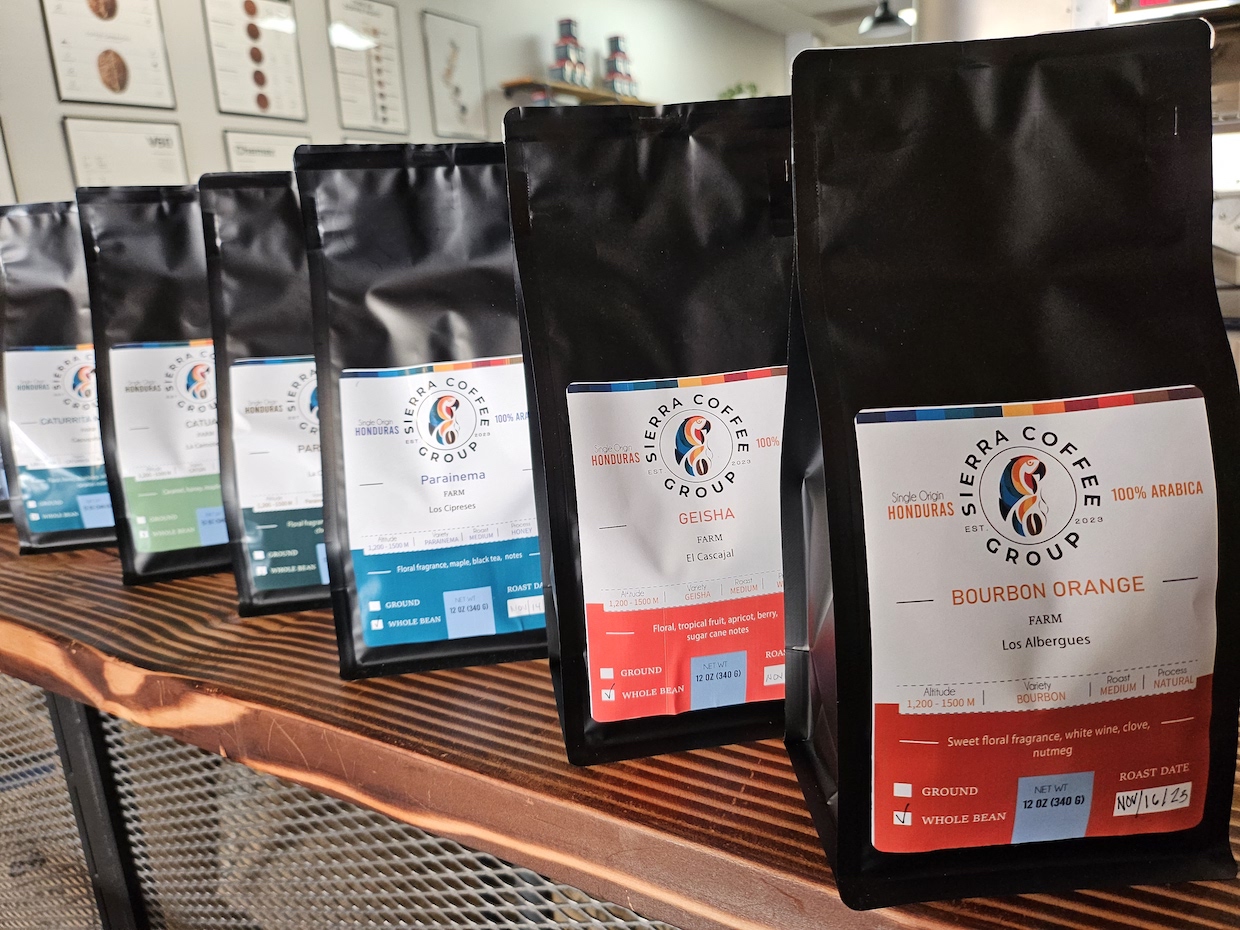
“We care about educating the customer and doing everything transparently,” Gomez told DCN. “We meticulously work to showcase the high quality of our beans. We take our time to explain to customers different brewing methods as well as different roasts.”
Mayra Sierra, who comes from a family of coffee producers, runs the company as CEO, while Mayra Gomez acts as COO. They jointly developed the business over eight months last year, importing coffees directly and attempting to directly support small-scale farmers in Copán.
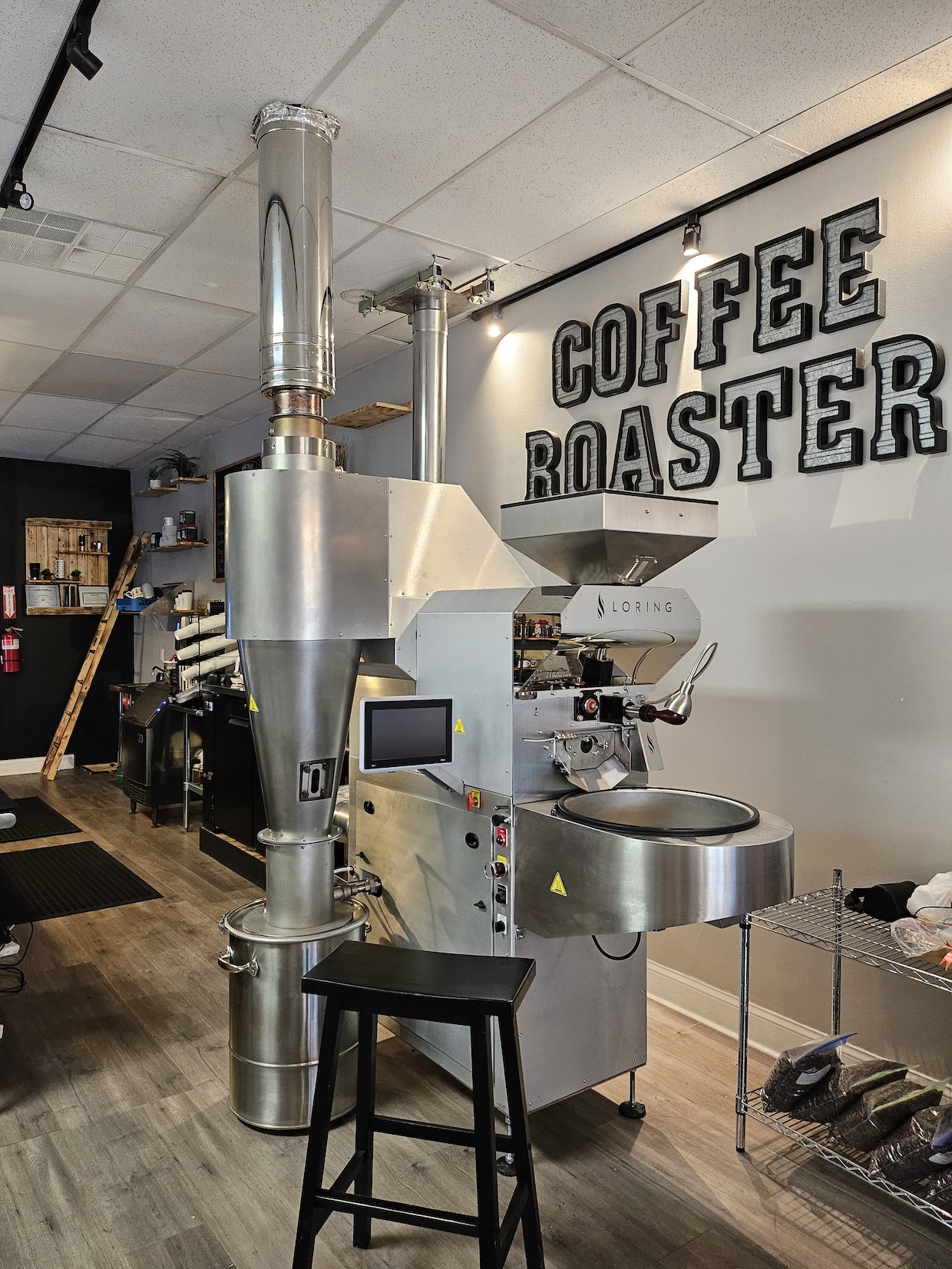
“At the moment we don’t buy coffee from established importers,” said Gomez. “We want more freedom to import microlots and nanolots from different producers and bring recognition to other farms.”
Roughly four months since cooling the first batches on its Loring and less than two months since opening the cafe, the company is now also looking to expand e-commerce and wholesale sales.
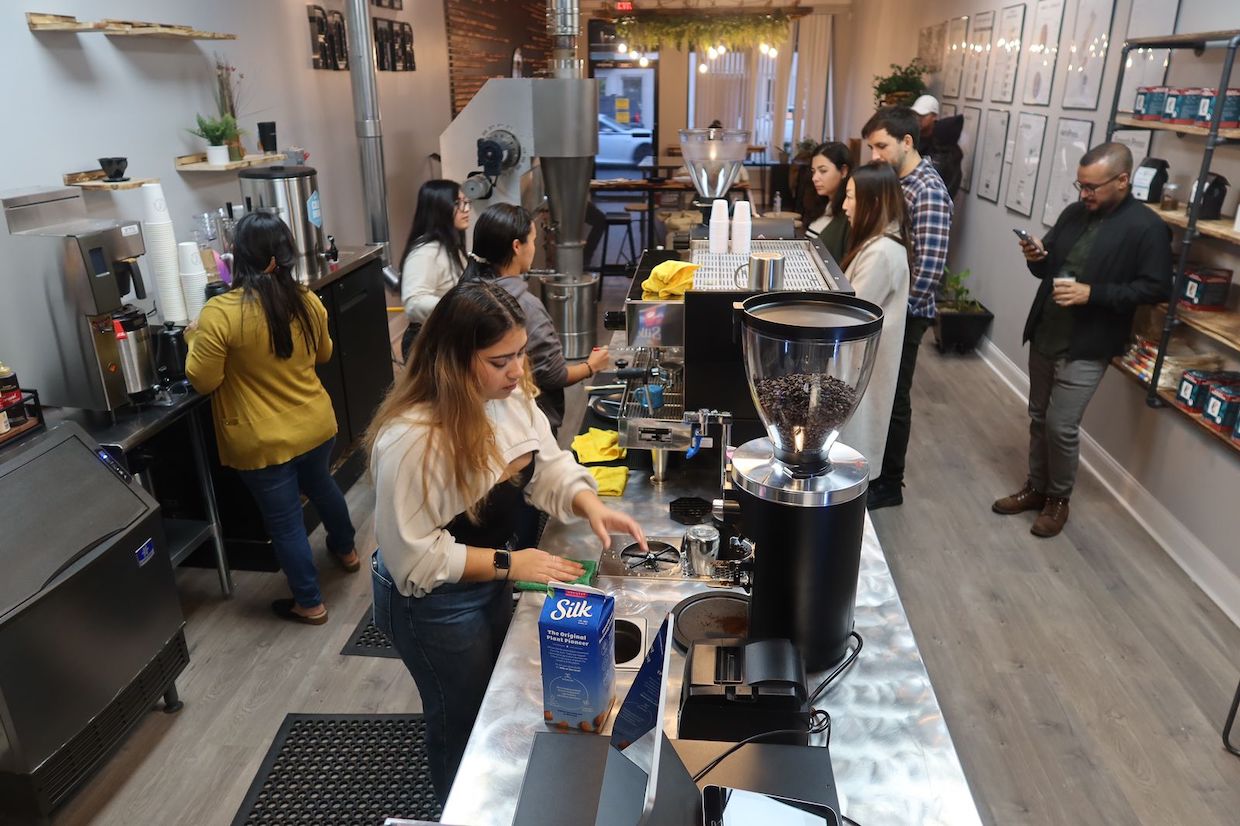
“Our main goal is to raise awareness of the high-quality coffee in Honduras. It seems other Central American countries such as Costa Rica and Guatemala have more recognition for their coffee, although Honduras is the biggest producer in Central America.”
